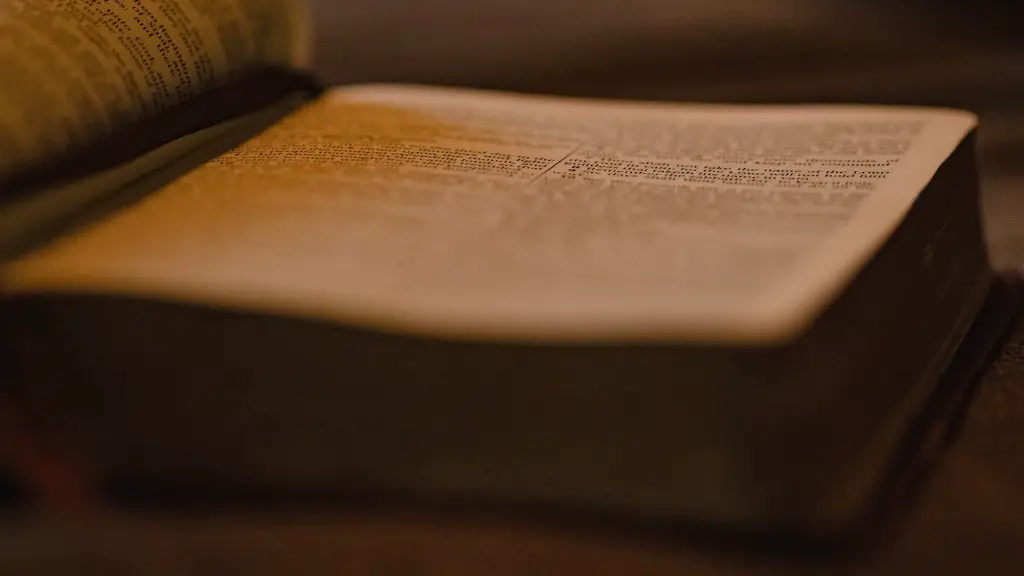Epic poetry is more than just a genre of literature, it is an art form that has grown to define cultures. Epic poetry tells the stories of a people, either through their own history, legends, and religious beliefs or some combination of these. Often, epic poetry plays a role in how a civilization’s views the world and the people within it. Epic poetry is much more than just stories, it is an expression of a culture, their values, and beliefs.
Epic poems usually tell a story, often in language that is lyrical and poetic. Characters and scenarios within the poem are often symbolic of the culture at large and have significant meaning. Many of the stories within epic poems focus on the gods or other beings that govern the land or have significant influence over the people. Other epic poetry have a narrative structure and tell tales of wars or other events, or just of simple everyday lives.
It is thought that Homer’s epics, the Iliad and Odyssey, are the oldest and greatest examples of epic poetry. The poem was written in an oral tradition that was passed down through generations. As such, a lot of the symbolism and metaphors in Homer’s poems were not understood until much later in history. The epic poems of Homer were some of the first books ever written down, and they were hugely influential in the development of European culture.
Epic poetry is significant in many cultures. In Australia, epic poetry forms the foundation of their oral storytelling and is used for both entertainment and teaching. Epic poems and songs help to connect people with their history and provide support for their cultural and spiritual identities. In India, there are several ancient epics including the Ramayana, Mahabharata, and Bhagavad Gita, which are all very influential in the culture.
Epic poetry is also popular around the world today. In the Caribbean, ‘Owa The Great’ by Cornell Campbell is a modern-day epic poem that tells the tale of two people coming together and overcoming a set of obstacles to reach a resolution. In Ireland, the poem ‘The Cattle Raid of Cooley’ is a popular Celtic epic that tells the story of the battle between two ancient Irish tribes.
Epic poetry has been used for centuries to tell stories, document cultures, and express values and beliefs. It is a powerful form of storytelling that has had far-reaching influences on the way we view the world. Epic poetry will continue to be important in cultures around the world for generations to come.
Role in Religion
Epic poems often contain religious themes, as many cultures often used stories from the epics to teach religious lessons. In Indian epics such as the Ramayana, characters and events often have symbolic meaning to the Hindu religion and can be interpreted in many different ways. Similarly, the Bible contains many epic stories that were used to convey spiritual truths to its readers. The stories in the Bible often provided comfort and hope to people facing difficult times and were used as a way to pass down religious values.
Epic stories also often use mythical creatures and gods as characters to represent different aspects of the religion. For example, in the Iliad, Apollo is a god who represents strength, loyalty, and perseverance. Epic poetry has been used to share religious values and beliefs through inspiring stories since ancient times and is still a popular way to do so today.
Impact on Modern Culture
Epic poetry has had a major influence on modern culture, particularly in literature, film, and TV. Many of the stories seen in these mediums have their roots in epic poetry, and its pervasive influence over the years is evident in the characters and storylines of popular shows like Game of Thrones and The Lord of the Rings.
Epic poetry has also been used in music to explore themes of love, adventure, and personal struggles. Musicians often look to the stories in epics to craft lyrics and develop their sound. It is not uncommon to hear lines from Homer’s Iliad in popular songs today. Artists such as Beyoncé, John Mayer, and Migos are just some of the few who have released songs inspired by the stories in epics.
In both literature and music, epic poems provide a source of inspiration for storytellers and musicians. Epic poetry’s influence on modern culture is still evident in the narratives being told today and its themes of heroism and adventure continue to captivate audiences.
Spoken Word
Epic poems often featured dramatic performances with music or chanting, known as the oral tradition. Performers of this type of spoken word would tell stories or recite poetry for an audience. This form of entertainment was used in early cultures and is still popular today, with performances in poetry slams and open-mic nights.
Spoken word often combines poetry and performance, blurring the boundaries between the two art forms. Poets often use spoken word to take on themes of power and oppression, often drawing from epic poetry to communicate their message. It has become an important tool for activists and provides them with a platform to shout their message to a wider audience.
Epic poetry and the spoken-word tradition have been around since ancient times, and they still play an important role in today’s culture. The stories and values shared in epic poetry still captivate audiences and help to shape the future of storytelling.
Symbolism
Epic poems often contain symbolic elements and metaphors, which can be used to express complex ideas and emotions. Epic stories often contain characters that represent different aspects of the culture and their beliefs, such as gods and other mythical creatures. These symbols are used to convey a message or theme and can be interpreted in many ways.
Symbols can also be used to link different stories together, or to connect different cultures. For example, the epic story of ‘Tristan and Isolde’ features the same symbols and themes as the ancient Greek epic ‘The Odyssey’. This kind of subtle connection between stories allow us to use the same language to communicate ideas and beliefs, no matter where the stories originate.
Symbols are an important part of epic poetry, as they can be used to express complex thoughts and emotions that are not easily written down. Symbols are powerful tools in story-telling and have shaped the way that cultures have viewed the world for thousands of years.
Conclusion
Epic poetry remains an important part of many cultures and stories from epics can still be seen in books, films, and music today. Epic poetry is much more than just stories, with its metaphors and symbols serving as powerful tools for storytellers and activists. Epic poetry has been around since ancient times and will likely continue to be influential in cultures around the world for generations to come.




